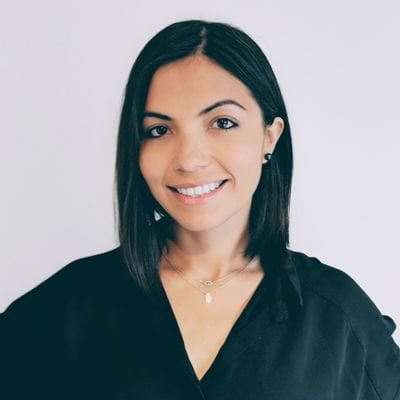Using personal experiences to make a difference

A post on LinkedIn, asking our followers to share details of the most inspiring women they know, led Editor-in-Chief, Anatu Mahama, to discover the remarkably inspiring story of Cecilia Landa-Avila. Here she shares what she found out…
From the moment we began talking, I couldn’t help but be captivated by Mexican-born Cecilia’s remarkable resilience and passion to thrive in academia.
With a first degree in Industrial Design from the University of Guadalajara, and experience of working in government to design graphic communications for programmes to enable people to access social support, Cecilia’s interest was initially around designing healthcare products.
However, with Mexico offering few design opportunities, Cecilia began a Masters in Ergonomics. Her dissertation, ‘Relationship of Usability with Emotions in Design’, was influenced by her own personal experiences of watching her mum, who was facing significant health challenges, access and navigate around facilities and transport.
“I wanted to make a massive change in the way the elderly and disabled persons access facilities” remembers Cecilia, “I wanted to make big changes in my city and country.”
Embarking on a journey to make the system easier for others and for future generations, these days Cecilia is touching base with ‘the real healthcare world’, to hear multiple perspectives and to understand why different things matter.
Now into her third year of a PhD at Loughborough University, (through a scholarship she was ‘filled with pride’ to receive), Cecilia aims to ‘understand what matters most to people regarding their healthcare – an understanding based on integrating the needs and desires of patients, their families, care staff and authorities.’
Cecilia’s PhD has been a life-changing journey and she has relished the exposure to so many different points of view based on different backgrounds and cultures. Through her research, Cecilia has realised that similar healthcare challenges exist in both the UK and in Mexico, something she has been fascinated by: “Their stories motivated me and gave me more ideas to work harder.”
Sadly, her experience has also been touched by incredible sadness, due to the loss of her mother – the inspiration behind her academic focus. She draws strength, however, from her loss to complete her PhD and to embark on an academic career with the sole aim of making a difference.
Cecilia is very certain about continuing a career in academia, however, she is realistic to the challenges she might face, particularly in what is predominantly a patriarchal system: “At the start of my career” she says, “I was one of two women in my department; there were 25 men at the time.”
Another hurdle Cecilia has been aware of throughout her academic career, is not coming from an affluent background and being educated in a public university, as she describes: “Whilst I’m proud to have been educated in a public university, this can be seen as a disadvantage, as there are still prejudices about the quality of its education. Also, as a design is perceived as a ‘soft’ discipline, it is hard to work in multidisciplinary teams, because there is still resistant from other subjects such as engineering or ‘hard’ sciences. So I feel I have to double my efforts in everything for recognition.”
Already many miles from home, studying for her PhD, Cecilia is, as you might imagine, open minded when it comes to where she settles next: “I’m flexible with my options. There are more opportunities for research funding here and in Europe than in Mexico, and even if I find myself back in Mexico, I intend to use the networks I have built here to continue to do research that will impact social change.”
Join our community – to share your stories, experiences and research, get in touch and let us know that you would like a feature to be written about you and your work or to contribute as a writer yourself. To learn more, visit theacademicwoman.co.uk.
Email hello@theacademicwoman.co.uk or call us: (+44) 7469933956

